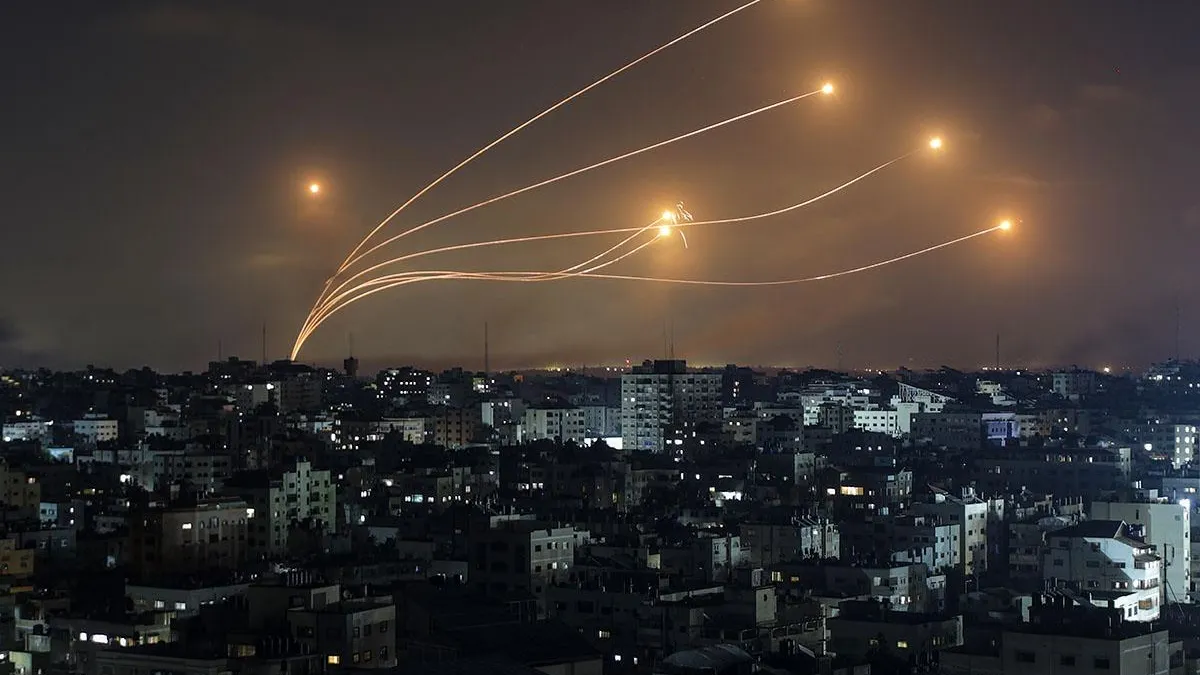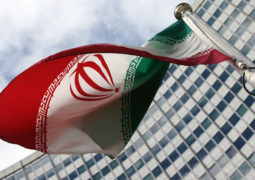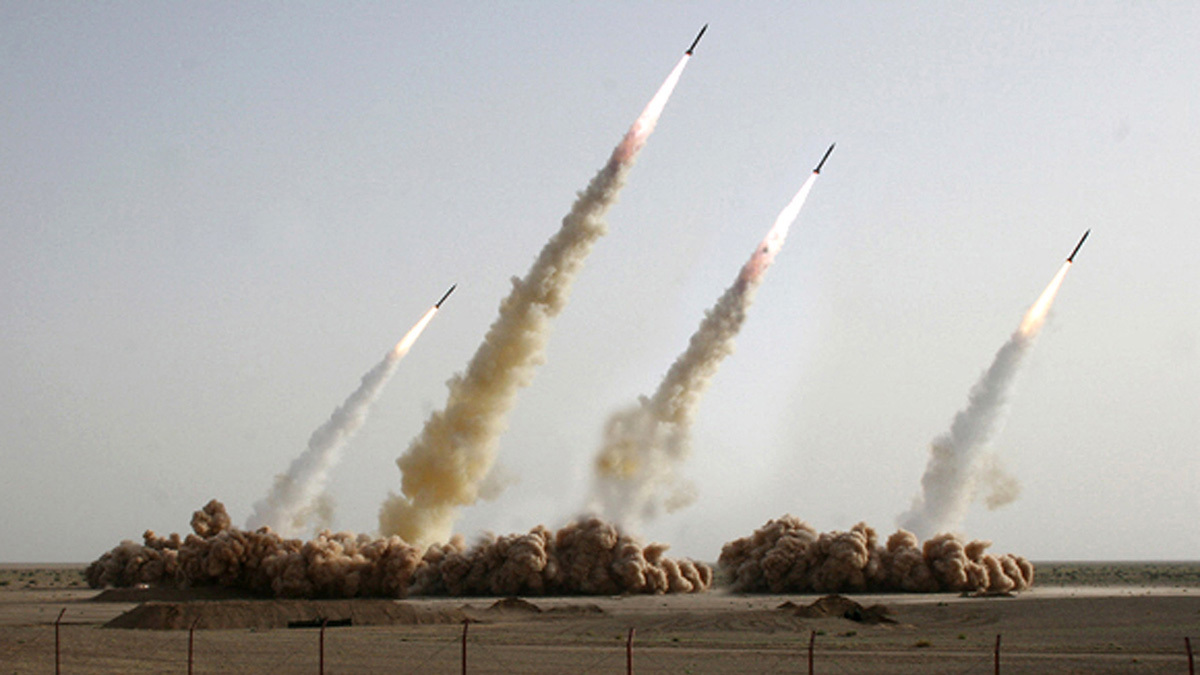Hot Topic
For the global nuclear nonproliferation regime, today is certainly Friday the 13th, and you do not have to look at the calendar. Israel’s strikes on Iran, especially on its nuclear facilities, are driving the final nail in the coffin of nuclear diplomacy.
The real damage from the Israeli attacks on Iran’s nuclear infrastructure, especially the Natanz enrichment complex, has yet to be assessed, based on unbiased sources. And the story is not over; it is happening before our very eyes. What is clear at this point is the following.
First. All multilateral efforts, lasting for many years, to diplomatically resolve the Iranian nuclear issue, to implement additional measures to control Iran’s advanced nuclear program (which at one stage also had a limited military-applied nature) have now finally collapsed. These efforts had several “episodes”. Some have been known to the world, others have remained behind the scenes. The most famous “episode” was nearly a decade ago, on July 14, 2015, when the Joint Comprehensive Plan of Action (JCPOA) was signed. It was a balanced, grounded in compromises, document that through peaceful means might allay major fears about Iran’s nuclear ambitions.
The first shot at the JCPOA was fired by Donald Trump during his first term in the White House, when the U.S. withdrew from the agreement.
It was a fatal move, with the JCPOA was severely wounded. After that, Iran no longer had a liking for unilateral concessions because it had lost confidence in this multilateral mechanism. Today, the Israelis with one shot killed both the JCPOA and the fledgling “new JCPOA” that the Iranians and the Americans had a chance to build on in their bilateral talks in Oman.
Second. The International Atomic Energy Agency (IAEA) is at a disadvantage. The IAEA could remain an “honest broker” by carrying out unprecedented inspections of Iran (no other country in the world has been subject to such detailed inspections). But what are the IAEA inspections today, when Israel is now, in these hours, “inspecting” Iran with its armed forces and pinpoint strikes (another question is how they are effective, we are waiting for more information) and issuing an ultimatum to Iran on unconditional “nuclear disarmament”: either Iran will allow Israel to “wipe out” its nuclear infrastructure by force, or Israel will bomb oil and gas industry facilities in addition.
Third. Donald J. Trump is at a disadvantage. I did not misspell it. I do understand that now he is making a good mine, like an experienced showman: well, the Iranians have had enough, I warned them, I gave them a deadline… But this good mine was laid with a very bad performance by Washington. Trump had the tools and opportunities to diplomatically achieve a full-scale dialog with Tehran. Yes, you cannot talk to the Iranians with ultimatums, and forcing them to completely abandon uranium enrichment was obviously unrealistic. Well, that is what negotiations are for, especially with Tehran: first you set the highest price, and then the bargaining begins… with a certain twist, its result could bring satisfaction to both bargaining parties. But Israel intervened and it was not satisfied with the compromises.
And this is where Trump showed his weakness. He is not such a “world leader” and “game changer” when he was forced to dance to Israel’s tune.
So, no matter how much there are talks about “diminishing Israeli influence in the second Trump administration,” all of those hypotheses have been dispelled by today’s Israeli missile strikes on Iran. Well, after Trump publicly states that he supports Israeli strikes on Iran’s nuclear infrastructure, in my opinion, he makes the United States “a country no-one-shakes-hands-with” dialog partner on nuclear nonproliferation. In this case, the strikes are being carried out by a nuclear-weapon state that ignores the Treaty on the Non-Proliferation of Nuclear Weapons (NPT) against a state that is a party to the Treaty and does not have nuclear weapons. Let me recall that the United States is a guarantor of the NPT and one of its three depositories (together with Russia and the United Kingdom). Good guarantor… I know, now the Trump administration, and some media outlets, are going to start promoting the legend that “you cannot negotiate with the Iranians without muscles, they will only respect Trump more now” and request negotiations on the terms of surrender. Well, well, well…
Fourth. The Middle East is at a disadvantage. Today’s Israeli aggression is plunging this region into a new abyss of conflict. It might seem too much for this long-suffering region. But Israel has made its calculations, opened Pandora’s box… Now the entire region will reap the bitter fruits. In this situation, the Saudis and other gulf states, which both dislike Iran and are concerned about its nuclear program, have so far limited themselves to lukewarm statements of “sympathy” for Iran. Israel’s calculation is that Iran does not have sufficient military power to respond adequately (and not just “for the sake of a tick”). The coming days will clarify this scenario.
Fifth. Russia is at a disadvantage. Over the past decades, Moscow has invested enormous political and diplomatic efforts to prevent military developments around Iran. Russian was one of the initiators of the JCPOA, and Moscow worked on it with the Democratic administration when U.S. warships approached Russia’s Crimea, and relations were at a low point. However, while addressing Iranian issues, Moscow decided to continue working with Washington as if nothing could stop them. Moscow cared too much about the success of the JCPOA. Russia wanted authoritative international inspections to confirm the exclusively peaceful nature of Iran’s nuclear program rather than relying on intelligence hints from the Americans and Israelis, some of which had turned out to be “deception” in previous years. After Trump withdrew from the JCPOA, causing it to fall apart, Moscow continued to persuade Tehran to avoid drastic retaliatory steps and pretend that the JCPOA was still alive. In February of this year, Trump asked Putin for help on Iran. Moscow agreed.
Today one of two things become clear: either Moscow was unable to help Washington in any way (and then it means that the degree of Moscow’s influence on Tehran was greatly exaggerated), or Russia was used as a screen while a military action was being prepared behind the scenes or at least when some were well aware of its preparation.
I am talking about the U.S. And here is the thing about the Israelis. They have signaled quite clearly to Moscow, including during their visits here – in my memory, in February of this year (and probably even later) that they are running out of patience with Iran. They claimed that they were less concerned about Iran’s uranium enrichment program (“Let Trump worry about that,” they said) than they were about Iran’s progress in weaponization. Regardless of whether this was true, the Israelis warned that if Tehran did not come to its senses in the shortest possible time (or if it was not restrained) there would be a war. It was probably assumed that Moscow would be the one to restrain Tehran. The problem was that the alarm was raised too often. The Israelis had issued so many warnings about a “military scenario” that their threats might have lost their credibility. There was probably also an illusion that Trump, playing peacemaker, would hold them to it. But what about Iran’s nuclear program? It is tempting to wonder if there is or was a clandestine military component to it, would not it be better for Moscow to loudly condemn Israel’s actions but quietly approve them? This would allow Moscow to focus on its own military affairs, in which Russia could learn from the Israelis, especially regarding preventive and precise strikes. Some of my colleagues are already asking this question. However, I strongly disagree with this approach. History has taught us that military attacks on nuclear facilities do not necessarily lead to the termination of nuclear programs. In fact, quite the opposite is true. For example, on June 7, 1981, Israel launched an airstrike against Iraq’s Osirak nuclear reactor (built with the help of France and Italy) under the pretense that Iraq could use it for its nuclear weapons program. The reactor was severely damaged. However, after that Iraq not only did not shut down its nuclear program, but, on the contrary, decided to create its own military nuclear program – only not on a plutonium basis, but on a uranium basis. And then it was quite successful in developing this military program.
Another example is the DPRK. Its nuclear facilities have not been attacked. However, they have been threatened with attack. Repeatedly. By Americans. At one point, Bill Clinton considered striking the DPRK, but then he changed his mind. George W. Bush listed the DPRK as part of “the axis of evil”. Pyongyang did not hesitate long. It announced its withdrawal from the NPT. It accelerated its military nuclear development. It built nuclear weapons with proving this fact by conducting nuclear tests. The alternative was Libya under Muammar Gaddafi, who teased that he intended to build nuclear weapons but did not actually do so. Pyongyang learned well what happened to Gaddafi in the end. Today Tehran is considering the same thing.
This comment was first published in the Kommersant Daily on June 13, 2025 (the article is translated from Russian into English).
Keywords: Nuclear Nonproliferation; Iran; Iran–Israel
NPT
F13/AST – 25/06/14





